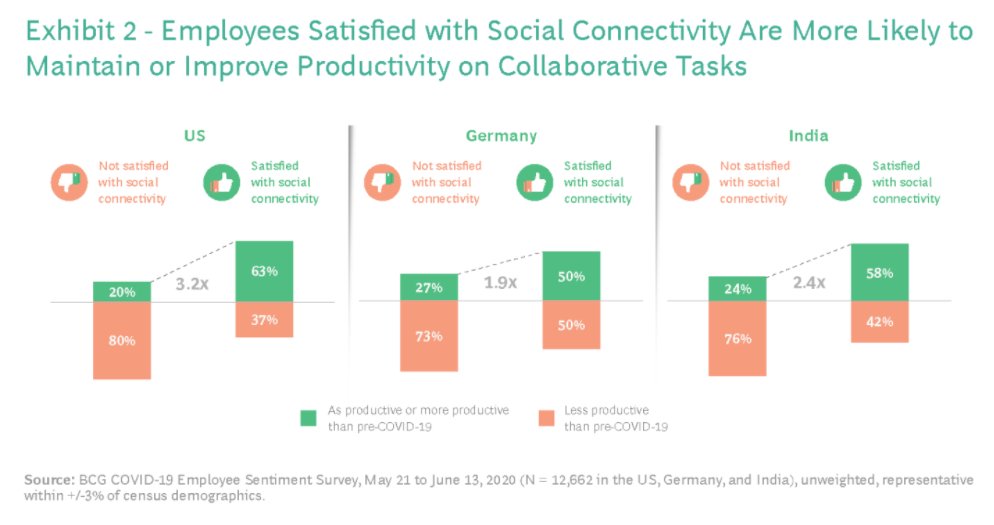Hello!
Many remote workers indulged their wanderlust during the pandemic, taking their laptops and passports to far-flung destinations. Now many parts of Europe are enticing them to come stay awhile longer.
Nearly a dozen European countries, from Latvia to Croatia to Iceland, have introduced longer-term visas to attract affluent remote workers from abroad. Others, including Italy and Spain, have similar plans in the works. Many, such as Greece and Estonia, are also wooing these so-called digital nomads with tax breaks and other perks.
Some European cities and villages have also started their own remote-worker campaigns as a way to boost their economies and sustain local service jobs. In Spain, for instance, a group called the National Network of Welcoming Villages for Remote Workers helps such workers settle in villages with 5,000 or fewer inhabitants. Its website lets users search participating villages for information on accommodation, Wi-Fi connection speeds and local attractions.
Some workers have taken “work from anywhere” to heart in the past couple of years. The number of Americans who identify as digital nomads—meaning those who combine remote work with travel—more than doubled to 15 million in 2021 from seven million in 2019, according to MBO Partners, which sells support services to independent contractors. Many say they want to stay untethered. In a June Gallup survey, 22% of workers who said their jobs can be done from anywhere said they plan to continue working remotely full time in 2022 and beyond.
Many digital nomads are skilled knowledge workers who earn well beyond the €2,000-€3,500 monthly income requirements of most European digital visa programs—a big reason so many countries and towns are trying to lure them.
“Countries are now competing for talent, just like companies used to compete for talent,” said Prithwiraj Choudhury, an associate professor at Harvard Business School who estimates nearly three-dozen countries worldwide now provide digital-nomad visas.
In Pontremoli, a town of 7,300 residents tucked in Italy’s Tuscan hills, two locals founded Start Working Pontremoli in 2020 after watching villagers leave for jobs in bigger cities for years. The group offers welcome services and free tours to remote workers considering resettling there. Once they arrive, it helps them set up meetings with school staff, real-estate agents and local administrators. A village priest, meanwhile, has donated a co-working space in a former seminary.
To date, 14 remote workers have moved to Pontremoli as part of the Start Working project—both from elsewhere in Italy and as far away as Brazil. In July, much of the town came together to celebrate the marriage of two remote workers. One is originally from Pontremoli; the other moved there from northern Italy in 2021.
“For raising kids, Pontremoli is paradise,” said Adolfo Sotelo, a 37-year-old Microsoft Corp. executive from Mexico who moved to Pontremoli in June. The finance manager and his family moved to Milan from Mexico in 2019 but wanted a change once the pandemic arrived.
“With so many young people here, it offers the opportunity for us to balance our kids, our dogs and our social lives in a way we couldn’t in a big city,” said Mr. Sotelo, who says he plans to stay and work remotely from Pontremoli.
Some companies are also promoting short-term remote-work assignments to keep sought-after talent happy.
 This year, Cisco Systems Inc., which sells videoconferencing and other networking technology, brought 16 of its European salespeople to Venice for three months of remote work as part of the city’s “Venywhere” initiative, which aims to attract remote workers to the Italian city. Alongside their regular jobs, the group is taking part in surveys and interviews about their remote-work experience and helping codesign new practices and technologies for hybrid and remote workers, Cisco said.
This year, Cisco Systems Inc., which sells videoconferencing and other networking technology, brought 16 of its European salespeople to Venice for three months of remote work as part of the city’s “Venywhere” initiative, which aims to attract remote workers to the Italian city. Alongside their regular jobs, the group is taking part in surveys and interviews about their remote-work experience and helping codesign new practices and technologies for hybrid and remote workers, Cisco said.
Organizers behind such local initiatives say they’re trying, in part, to avoid the pitfalls experienced by some digital nomads and the hot spots they’ve moved to. In Mexico City, a popular destination for American remote workers, some residents have complained the influx has driven up rents and other living costs. Likewise, many remote workers have set up shop abroad, only to run into Wi-Fi troubles, tax mishaps and visa and other administrative hurdles.
The U.S. requires its citizens, no matter where they live, to file and pay income tax. Many, though, are eligible for a credit or deduction on foreign income taxes they pay if they live in a country that has a tax treaty with the U.S.
Some countries are trying to smooth out the red tape for digital nomads. Italy aims to start administering visas in the coming months that would let foreign remote workers stay well beyond the 90 days allowed for many tourists. Spain’s program, expected to launch around the same time, includes tax breaks for non-EU remote workers and entrepreneurs who settle there and a visa allowing stays for up to five years.
Malta rolled out a “nomad residence permit” late last year that allows non-European Union remote workers earning at least €2,700 ($2,755) a month to live on the Mediterranean island nation for up to a year. (Digital workers from elsewhere in the EU aren’t included in the program, as they don’t need a permit to work in Malta.) The Maltese government has since processed more than 400 applicants, the majority from the U.S. and the United Kingdom.
 Savana Rose Woods, 64, was working from her San Luis Obispo, Calif., home when she learned about Malta’s visa program. “I was just sitting in front of my computer and thinking: Are you just going to sit here in front of your computer for the rest of your life?” recalled Ms. Woods, who runs a marketing company. Within five months, she’d held a party to get rid of her belongings, said goodbye to her beloved cherry-red Honda and set up her business there.
Savana Rose Woods, 64, was working from her San Luis Obispo, Calif., home when she learned about Malta’s visa program. “I was just sitting in front of my computer and thinking: Are you just going to sit here in front of your computer for the rest of your life?” recalled Ms. Woods, who runs a marketing company. Within five months, she’d held a party to get rid of her belongings, said goodbye to her beloved cherry-red Honda and set up her business there.
With her work hours adjusted for American clients, Ms. Woods said she often starts her mornings savoring a cappuccino and a pastry from the bakery down the road.
She might run an errand, take a swim or chat with people in town.
In the afternoon, she “does what the Maltese do: take a nap,” she said. After that, she gets to work.
The California native is looking at staying in Malta the rest of the year, though she isn’t certain she’ll renew her visa for 2023.
“There are just so many other choices available,” she said. “Maybe Portugal will be next?”
"In an attempt to attract a younger workforce, companies are starting to offer crypto salaries" 🍯
We’re big believers in a #futureofwork powered by #crypto & #web3 🚀 But we also know major changes don’t happen overnight.
"A decade ago, job-hopping every 2 or 3 years could land a CV in the bin. But as the talent market grows more competitive, recruiters have become open-minded" 🧠
 Today’s reality is that job-hopping has become the norm for a younger generation of workers 🐇
Today’s reality is that job-hopping has become the norm for a younger generation of workers 🐇
Freelancing is playing a major role in #futureofwork 🧑💻 and we see freelancers looking for more opportunities to earn #crypto 🍒
Whether jumping off the deep-end 🤿 with entire salaries or starting light with bonuses 🍒, it's clear the workforce sees the #futureofwork is #crypto 🚀
 According to bcg.com , fostering social connectivity 🤝 In remote work environments 👩🏾💻👨🏻💻👩🏼💻👨🏽💻 can help drive productivity 🚀 Unlock productivity in collaborative tasks by sharing value (in #crypto) with those who create value 🏆
According to bcg.com , fostering social connectivity 🤝 In remote work environments 👩🏾💻👨🏻💻👩🏼💻👨🏽💻 can help drive productivity 🚀 Unlock productivity in collaborative tasks by sharing value (in #crypto) with those who create value 🏆
The Great Resignation is real 🌊 and the #futureofwork is online 👩💻 and decentralized 🌍
 Visa "found 40% of 6,000+ survey respondents would be likely to switch primary banks to one that offers crypto products" 💪
Visa "found 40% of 6,000+ survey respondents would be likely to switch primary banks to one that offers crypto products" 💪
With the job market heating up 🔥 in 2022, you can consider setting themselves apart.
The #futureofwork is changing 🚀 and #crypto, #web3 are already having major impacts on how we identify & collaborate online 🤖
The #futureofwork is trending towards "Internet native jobs" 👩💻 As a result, tokenization & #crypto assets will increasingly play larger roles in driving value creation, enabling value distribution 🥧
Your QUASA! Your Way!






